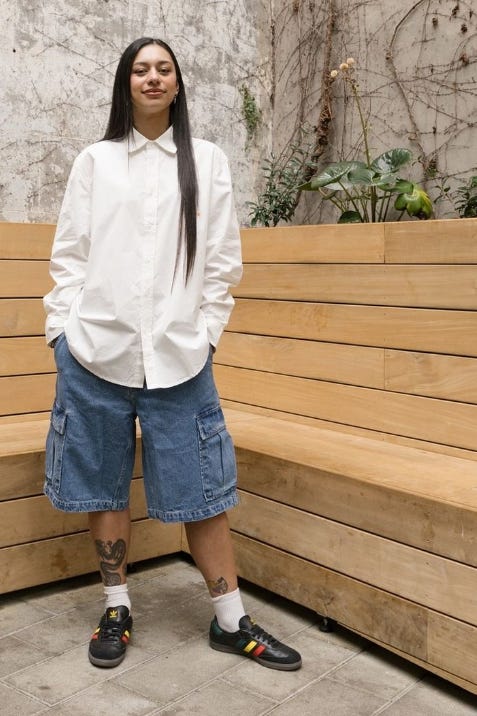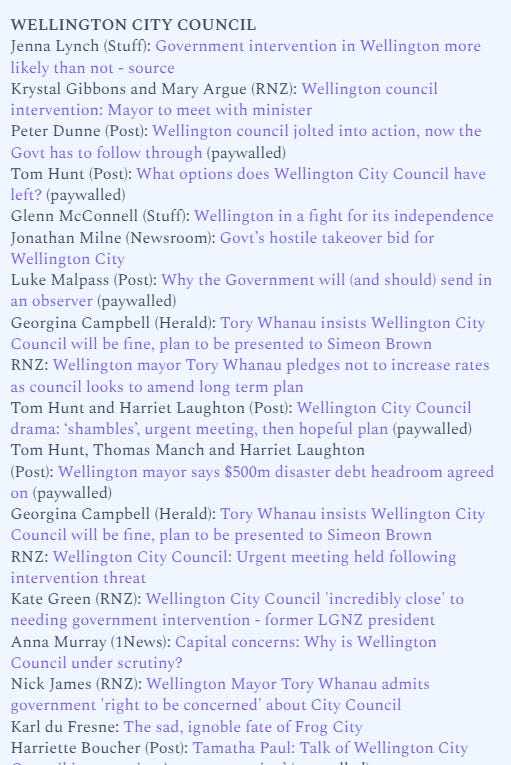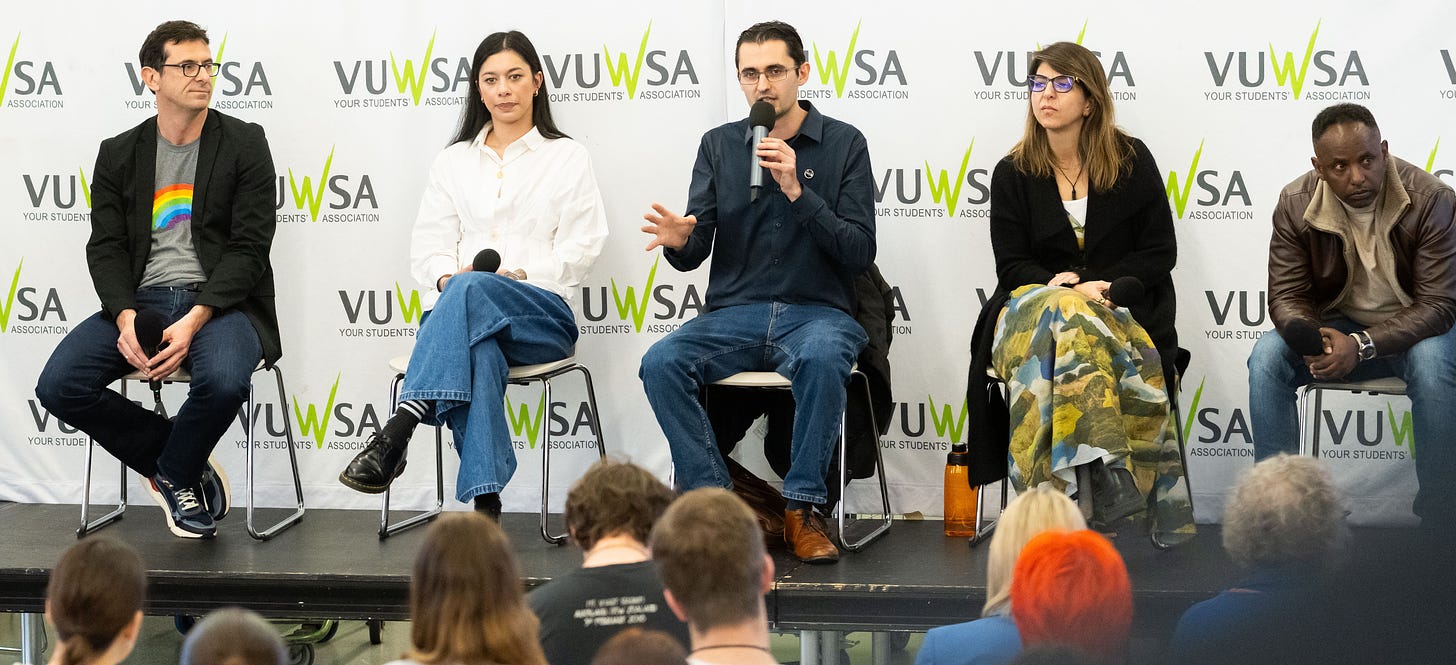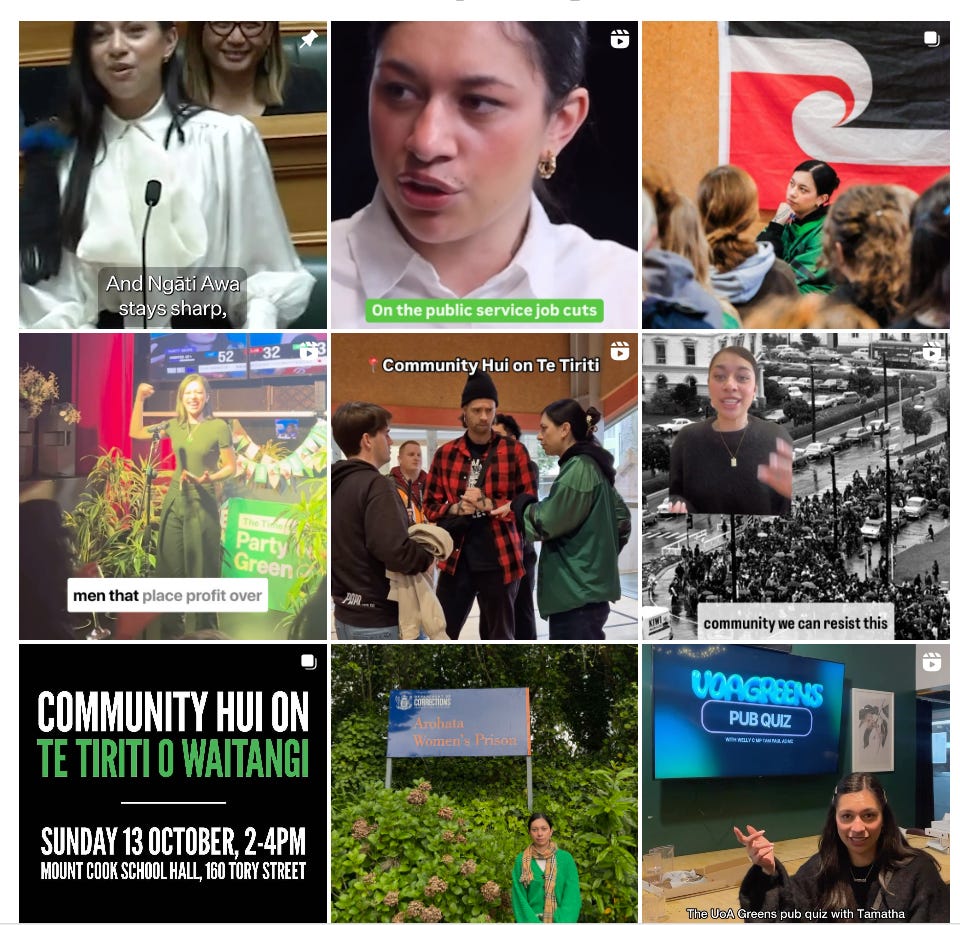Politics Beyond the Base: Where is the Leadership in Wellington?
Tamatha Paul and the Broader Responsibility of Governing Wellington Central
Wellington has been grappling with many challenges lately—public service job cuts, ongoing unresolved ferry issues (which I’m particularly concerned about due to the lack of clear communication on this matter), and an underperforming public transport system. These are critical issues for our city. I’ve been reflecting on them while speaking with people across various sectors about what Tamatha Paul is doing, whether it’s making a difference, and what questions we should be asking about the role of our Wellington Central MP. Today, the perception seems to be that she is largely absent from the many issues we face beyond her areas of apparent interest, which seem to be Palestine, The Greens and a recent workshop she attended regarding Te Tiriti o Waitangi.

There’s been extensive media coverage of Wellington’s issues. Look at Bryce Edwards' NZ Politics Daily from last week. Given Tamatha’s experience on the Council, she is uniquely positioned to broker discussions or, at the very least, communicate her views on how to improve things. It raises the question of whether her connection with Council peers influences her ability to take on the full responsibilities of her role as MP or whether there is an opportunity for her to use that experience to lead more effectively.

So, What is Tamatha Paul doing?
While I’m sure she’s working hard behind the scenes, without visibility into her actions, it isn’t easy to assess whether her focus aligns with Wellington's pressing needs. Political responsibility isn’t just about focusing on your interests as an MP or base—it’s about governing for everyone, including those who didn’t vote for her. Leadership is not just about leading on what you want; behind closed doors, it’s SEEN to LEAD on what your constituents are struggling with, regardless of whether they support you or not.
In my January 23rd Less Certain newsletter, I explored what Tamatha Paul had achieved in her first few months as Wellington Central's MP. I noted that her time was spent mainly transitioning from her City Council role, learning the ropes in Parliament, and engaging in causes like the Palestine protests and Te Tiriti-based issues. While she had been busy, I questioned whether her actions had the necessary impact. At the time, I committed to following her term to enhance social cohesion and foster constructive dialogue.
Now, I don't usually zero in on individual politicians unless I feel it’s relevant to the context and done in a mana-enhancing way. I tend to focus on the bigger picture—political parties, policies, and institutions like Parliament or government agencies. That’s where I see the real impact, at the messo and macro level, not the micro. My background in political science, particularly in Institutionalism, frames institutions as the key political players, which interests me the most.
But in this case, Tam is missing a significant opportunity to step up and take responsibility for the entire electorate, not just her supporters or single-interest topics like Palestine, Justice or Te Tiriti o Waitangi. Even housing, which she focused on during her campaign and academic work, seems largely absent from her comms. Given how much there is to tackle in this space, I wish we could see more of her views on what is currently happening in Wellington.
Once elected, it’s your job to represent and govern for everyone, no matter who voted for you.
This principle applies to all parties, not just the Greens. I’ve said this about Labour and National, too. Whether it’s Labour’s mismanagement of the Parliament protests and Capital Gains Tax or National and ACT ignoring dissenting voices on the Treaty Principles Bill and the Fast Track Bill—these missteps erode trust and, ultimately, our social cohesion.
Tamatha isn’t exempt from this responsibility. Once elected, it’s essential to govern for all, especially those who didn’t vote for you.
Tamatha’s maiden speech, which was so powerful and moving, emphasizes her commitment to representing Wellington Central and advocating for systemic change. She highlights her working-class background and the importance of people power, focusing on addressing inequality, environmental sustainability, and Te Tiriti o Waitangi. Paul critiques the current political system for favouring profit over people and expresses her goal to bring genuine leadership rather than maintaining the status quo. So, my question is, where is her leadership for Wellington Central?

Given the vision outlined in her maiden speech—systemic change, representing the marginalized, and advocating for environmental and social justice—there’s a clear alignment with Wellington's needs. However, to truly fulfil her potential as both an advocate and a political leader, she must show more visibility and action on local, tangible issues like public service job cuts, transportation, housing and struggling businesses and even environment laws in Wellington Central, given her Green Party membership. Addressing these concerns would reflect the leadership she promised and demonstrate her commitment to governing for all beyond advocacy.
Over the past few months, Wellington Central has felt increasingly disconnected from its MP. I get it—Tamatha is not in Government, so her options are limited. Right? Wrong! And I get that comparing her to Grant Robertson might not be entirely fair. Robertson had both a Cabinet role and electorate visibility.
But even as an opposition MP, there are key leadership opportunities—reassuring the public, building bridges across party lines, and addressing real concerns in our divided city that I don’t think she is taking or doing.
It’s been hard to understand what Tamatha is doing beyond her social media posts. Her Instagram highlights engagement with causes like Palestine, Te Tiriti o Waitangi, and women’s prisons, but where’s the conversation around housing, the environment, struggling businesses, and our transport issues? Where is the evidence of her collaborating with opposition partners like Labour or Te Pāti Māori or even working across the aisle with ACT, NZ First, and National? Chloe Swarbrick, for example, has worked with Judith Collins on AI policy—why isn’t Tamatha showing strategic leadership in Parliament to leverage her position as an opposition MP?

This brings me to a crucial distinction: Is Tamatha advocating, or is she governing?
Advocating is about rallying support and raising awareness, which is particularly important for a Green MP in opposition. Advocacy helps bring attention to issues that might not be front and centre in the political discourse, especially for minority voices or critical social justice causes. Tamatha’s focus on advocacy is vital, allowing her to push critical issues like environmental sustainability and social justice into the spotlight. However, while powerful, advocacy alone often lacks the actionable steps required to make lasting changes. Especially when you have the mandate, privileges and political levers that a local MP has in Parliament.
Governing, however, requires more. And by governing, I don’t mean that only MPs in government can govern. Any politician publicly elected to Parliament—whether in opposition or government—is responsible for governing. This means decision-making, strategic collaboration and engagement, problem-solving, developing political strategy, and representing a diverse electorate. Governing involves engaging with people you don’t always agree with within Parliament and outside it, compromising, listening to their concerns, and offering balanced solutions that reflect the needs of everyone. It’s about bridging divides and ensuring that all voices, not just your base, are heard and addressed.
A great example of this is what Ngāti Toa leader Helmut Modlik did recently with David Seymore, that is true political leadership.
Now, below are a few reasons of why you think this could be happening:
"It’s the Mayor’s job, not Tamatha’s."
While it’s true Tamatha isn’t the Mayor, as Wellington Central's MP, she still holds significant responsibility and massive power. MPs aren’t confined to national issues—they can and should engage with local matters, particularly when connecting national policies to local challenges. It’s her job to represent Wellington at a national level and advocate for the city and everyone, especially during times of strain.
"She is absolutely doing things."
This may very well be the case. However, beyond Instagram, it’s hard to track what those actions are. More transparency and communication are needed. As I said above, it’s not just about leading; it's about being seen to lead. Other MPs provide regular newsletters like Greg O'Connor’s, public updates, or media appearances that give their constituents insight into their work. Tamatha could benefit from more consistent communication about her initiatives and achievements through any of the many channels we can access in 2024.
"It’s her first year, give her a break."
Yes, it’s understandable that the first year has a learning curve. However, this is exactly the time to establish visibility and make connections. Tamatha’s supporters should know that early momentum in an MP's term is critical for building trust and credibility, especially in an electorate like Wellington Central, which expects active and visible leadership. We are a well-informed and motivated electorate, more so than others in Aotearoa.
Other possible arguments from her supporters:
"She’s focusing on long-term systemic change." This could be true, but the electorate still needs visible engagement on current, pressing issues.
"She’s prioritizing her values and key causes." That’s important, but as an elected MP, she must also balance her values with the practical needs of all Wellingtonians, not just her base.
"She’s young and learning." Being a young MP can certainly bring fresh perspectives, but it also means demonstrating the ability to manage the full responsibilities of the role early on.
Also, I wouldn’t underestimate Tamatha due to her age—she’s a force to be reckoned with. In fact, this is why we should expect more from her. When she sets her sights on something or wants to draw attention to a cause, she makes it happen. So, the question remains: where is she when Wellington needs her most?
Tamatha Paul holds several important roles as part of her parliamentary responsibilities. She serves as the spokesperson for Corrections, Courts, Housing, Justice, Police, Wellington Issues, and Youth for the Green Party, with these appointments starting in late 2023 and early 2024.
Additionally, she is a member of the Justice Select Committee, where she contributes to legislative review and oversight. These roles give her significant responsibility across various areas, particularly those that affect Wellington and the broader justice and housing sectors.
I genuinely believe Tam has the potential to do both. Advocacy is undoubtedly her strength, but I hope to see her step into her role as a governing MP. There’s a lot at stake in Wellington right now, and leadership means being there for everyone, not just your base.
See ya next week!





Hey Natalia, I've been thinking about this a lot over the last few weeks in particular. Like you, I like Tamatha and I want to give her the benefit of the doubt. I hear your points 1-4, but I don't buy them. Her electorate is getting a hammering in the national media and as a result there are plenty of opportunities to both "advocate" and "govern" during this crisis.
My take - I would not be surprised if the Greens, have asked her to stay on the down low, to allow the Mayor to hold the mic, and potentially a) allow the Mayor the chance to shine and own it or b) ensure the Mayor doesn't take Tamatha down with her! The situation reinforces my strong view that local politicians should not be affiliated to any national parties. Our politics is already overly tribal, and the media feed of this negative energy like starved wolves. We need to take every opportunity to create space for people to make decisions based on objective evidence, not political bias.
In the meantime, would the real MP for Welly Central step up please.......?
The Labour party has been quiet too? Is their mantra to sit back and watch the Right maybe implode?